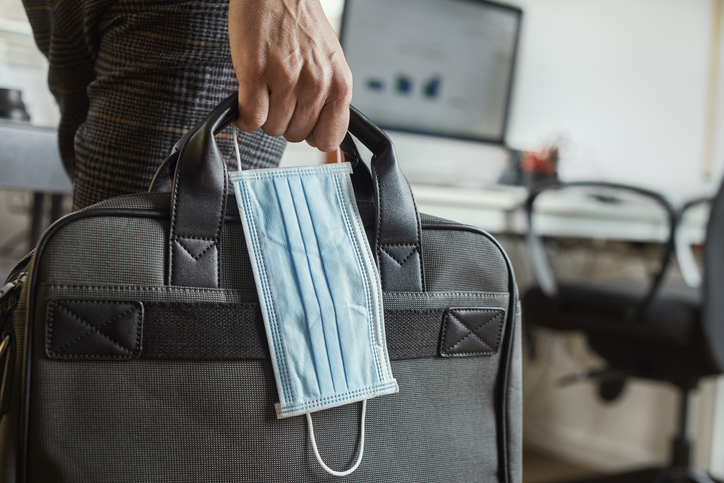Mandatory Masking for Some Workers
Last Updated on August 12, 2020
Masking: The COVID-19 Protection Mandate
Businesses are trying to prepare and adjust as a growing number of US states have mandated the use of masks and face coverings while in public.
With the recent lift of coronavirus restrictions, more businesses are opening, but the number of cases are still rising. Masks are being advised or mandated in many states to slow the spread.
What does mandatory masking this look like in the workplace?
The future of work will involve a lot of face masks, at least in the short runas companies do all they can to attempt to slow the spread of COVID-19. The rules and expectations for face masks are evolving each day. With so much in this ongoing pandemic, the answers aren’t always clear.
It’s a good idea to look to The Occupational Safety and Health Administration (OSHA) for some guidance. On June 10, OSHA stated that “millions of Americans will be wearing masks in their workplace for the first time” as businesses reopen and offices repopulate after months of stay-at-home orders. “OSHA generally recommends that employers encourage workers to wear face coverings at work,” the agency said, but it added that employers can decide not to, “based on the specific circumstances present at the worksite.”
Engineering and administrative controls, such as improving air ventilation and ensuring strict social distancing, are also ways to protect workers. Face masks should be used in addition to this when those measures aren’t feasible, according to OSHA guidance.
There is evidence in a recent study that the use of masks and face coverings reduces person-to-person spread of coronavirus. People are being advised to wear masks when they cannot social distance. Many states are mandating it in businesses or group settings.
The Mask Rules Are Changing Again!
Changing CDC Mask Guidance
If employers are confused, we can understand why. After saying we don’t need masks in public, the Centers for Disease Control and Prevention (CDC) changed their mind. In early April, the CDC said everyone should wear a face covering when near others to prevent unknowingly spreading the disease. This is especially important because some people with COVID-19 never show symptoms, the CDC said. “Cloth face-coverings provide an extra layer to help prevent the respiratory droplets [that spread the infection] from traveling in the air and onto other people.”
Federal Vs. State Rules for Masks
For now, the federal government considers mask usage at the workplace to be voluntary. However, some states require that employees wear masks in certain occupations. These include public-facing employees, such as restaurant servers and hair stylists.
Each state has a slightly different take on the when and where of mask requirements. For example, Connecticut requires mask use in office buildings among other settings, and in Ohio, all businesses must provide masks and require employees to wear them or provide written justification for not doing so. If an employer requires masks, they generally must provide them under state laws.
Apart from satisfying any legal obligations, providing masks to employees and encouraging their use to prevent the spread of infection can make other workers feel more comfortable and willing to come into the workplace.
Employers Should Stay Aware of State Regulations
Various governors have created executive mandates where face coverings are now required and risk citation if not followed due to governmental executive orders. This varies from state to state.
Stay on top of this information, as all things with COVID-19 are fluid. As new announcements are made, guidance may become outdated quickly.
Get COVID-19 Human Resources Support
MyHRConcierge offers a COVID-19 Support Package for small to mid-size employers. The package provides human resources news, guidance, and support related to COVID-19.
For more information regarding HR policies during the COVID-19 crisis, or other HR needs, contact MyHRConcierge at 1-855-538-6947 x.108 or email ccooley@myhrconcierge.com.

